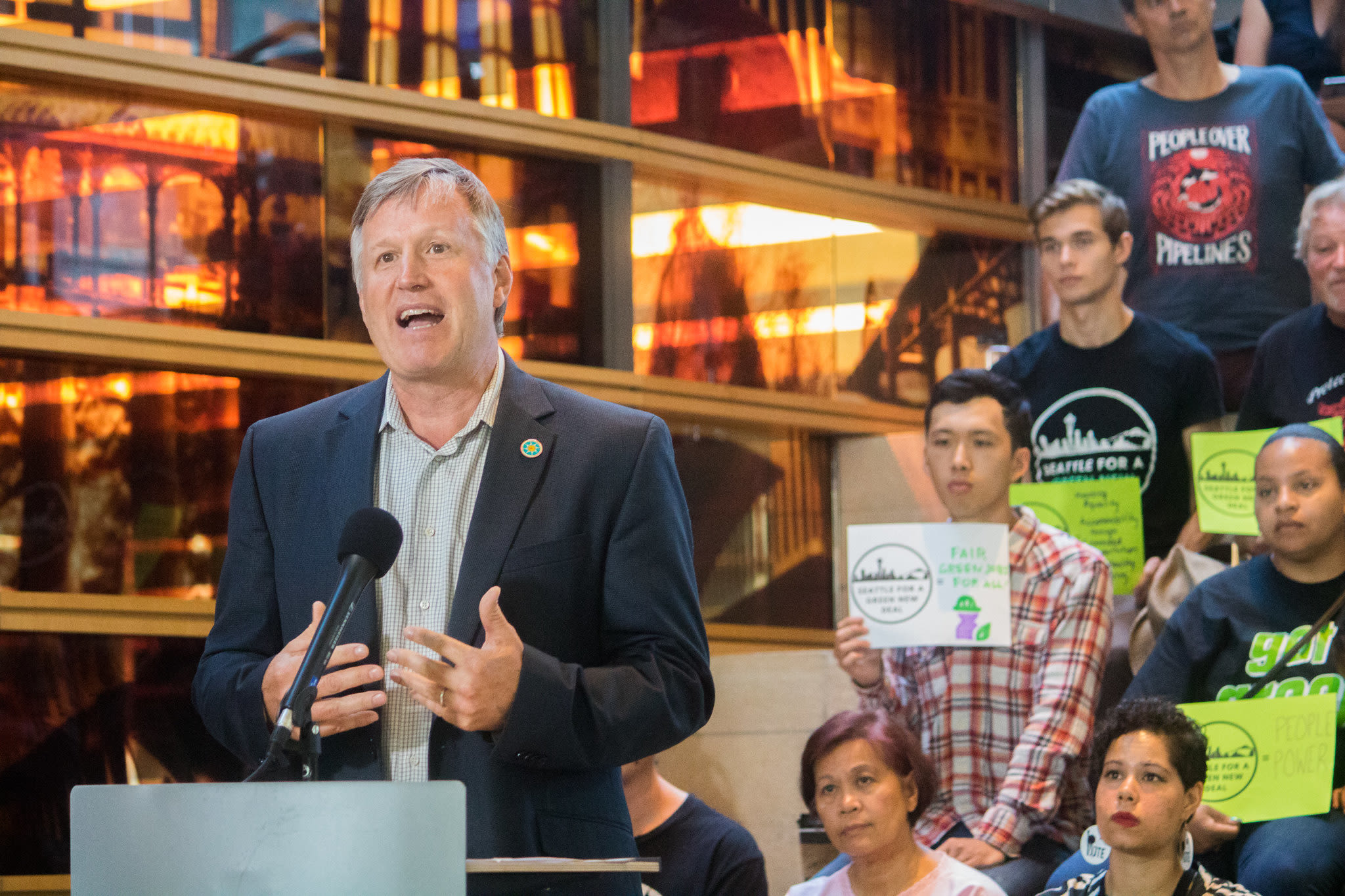City Hall
Extra Fizz: Rasmussen Proposes Restriction on Mayor's Transit Plan

This post has been updated.
Speaking of the Transit Master Plan, City Council member Tom Rasmussen has proposed legislation that would bar Mayor Mike McGinn from spending money on the plan unless the council signs off on the scope of the plan.
Mayor Mike McGinn proposed revamping the city's outdated Transit Master Plan (which, among other things, still includes the monorail) as part of his "Walk Bike Ride" proposal, a likely precursor to additional city funding for transit. The legislation Rasmussen has proposed would bar the Seattle Department of Transportation from spending any money to move forward the plan "until authorized by future ordinance."
Rasmussen (who has sparred with McGinn over transportation before), says he proposed the restrictions, known as budget provisos, because McGinn has begun seeking a consultant to update the plan without talking to the council.
Rasmussen also says he's concerned about spending up to $800,000 from the voter-approved Bridging the Gap levy on transit planning when funding for transportation projects is in short supply, and says members of the Bridging the Gap Oversight Committee expressed similar concerns.
"Because there are so many unfunded needs---bike needs, sidewalks, safety improvements and many more---I wonder whether this is the appropriate source of money," Rasmussen says. He says it's worth asking, "Do we want to spend this amount? Yet they're still proceeding ahead without us reaching agreement on that."
Oversight committee member Bill LaBorde says the levy has already funded the transit projects it was committed to funding, so a Transit Master Plan update would be an appropriate use of the levy's transit dollars.
Committee member Holly Krejci says the committee had concerns about committing Bridging the Gap money to the Transit Master Plan, instead of other projects that have already been proposed, in future years. "So we happen to have the money this year, but we may not in the future," Krejci says. "My sense is that if it becomes a part of the [Bridging the Gap] work plan, we're going to have a very different discussion."




